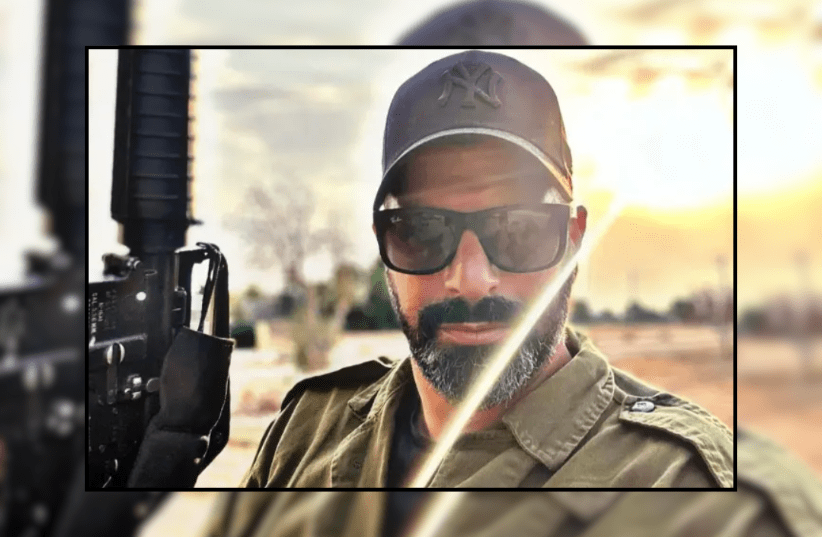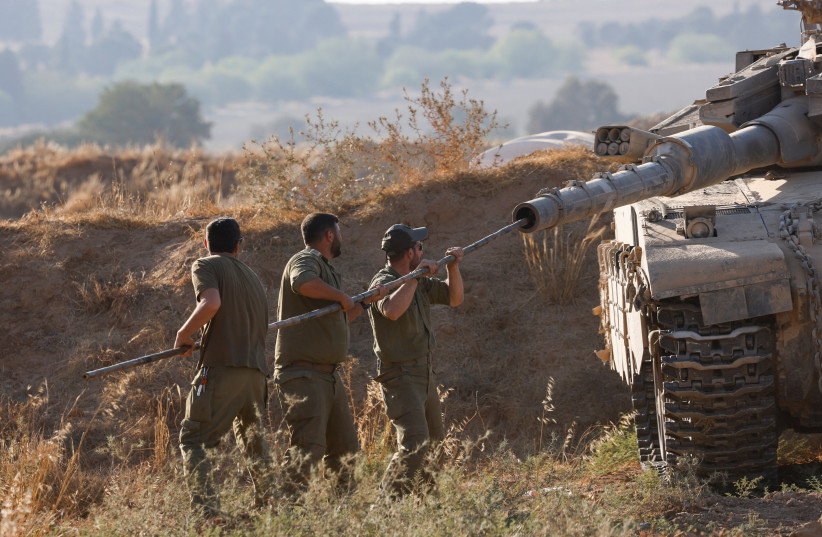The tragic story of Eliran Mizrahi has haunted the country for the last week. It reflects the far-reaching trauma that so many Israelis have encountered since the October 7 massacre by Hamas.
Ma’aleh Adumim resident Mizrahi, a married father of four, was called up for IDF service shortly after the attack and was assigned to help clear the bodies of those murdered by Palestinian terrorists at the Nova music festival. He was then sent to Gaza, where he served as a combat engineer for nearly seven months.
Mizrahi’s mother, Jenny, told Kan News that he was injured twice while on duty but that he refused to leave Gaza the first time he was wounded, preferring to stay with his comrades. He was finally discharged in April.
Traumatic experiences
Mizrahi was recognized as a disabled IDF veteran and diagnosed with post-trauma stress disorder (PTSD). However, inexplicably, he received a Tzav 8 (emergency call-up order) from the IDF last week to return to Gaza two days later.
Instead, at the beginning of the week, Mizrahi took his own life.
The tragedy that has befallen the Mizrahi family, and the unbearable anguish they were experiencing, was inconceivably made even worse for two reasons: their shock that he had received a call-up after his diagnosis and after having served for seven months in a brutal war and the refusal of the IDF to recognize him as a fallen soldier.
The family’s efforts to get Eliran recognized with that status and have him buried in the military cemetery at Mount Herzl – and receive the benefits and honor that come with dying in the service of one’s country – was denied by the IDF because he was not on active duty when he died.
“He had rockets fired at him, he saw his friends die, and he brought bodies back, and he still did everything for Israel,” Eliran’s sister, Hila, told Channel 13, “I think that the respect he deserves is to be buried in a coffin with an Israeli flag on it and for soldiers to salute him.”
His mother, Jenny, added, “The man gave his life to this country and our army, and he doesn’t deserve a military burial? Instead of focusing on our grief, we must fight for his honor.”
Jenny expressed amazement that he was called up considering his condition, saying, “He came home different. We got back a broken man who was impatient with the kids. He was angry, and he had nightmares.”
She added that psychiatrists treating him said he couldn’t be helped.
On Wednesday night, the family’s grief was lifted a smidgen when the announcement was made that the IDF had overturned their decision and that Mizrahi would indeed have a military burial.
The decision was made after consultations with Defense Minister Yoav Gallant and IDF Chief of Staff Lt.-Col. Herzi Halevi. Mizrahi’s funeral took place on Thursday.
The decision to issue a call-up to Mizrahi should be investigated, and measures should be taken within the IDF to ensure that soldiers in similar situations are not returned to active combat service.
Thousands of soldiers are returning from Gaza with PTSD, and more than 10,000 reservists have asked for mental health services, according to Nifgashim, a social movement that works to provide comprehensive mental health support to reservists.
Mizrahi’s death should “emphasize more than ever the growing need for support for reserve soldiers and their families, to facilitate the transition between the routine of combat and civilian life,” Nifgashim’s CEO, David Solomon, told the Post’s Eve Young.
“We must act to make this case be the last of its kind,” he said.
“The reservists want to serve the country and are even willing to sacrifice their lives for us,” Solomon said. “But difficulties at home with their mental health and [also] at work pose a dilemma for them between the willingness to serve and their natural desire to maintain their homes, families, and livelihoods.
“It is our responsibility and duty to support them and their families and allow them to go to battle and defeat our enemy,” he said.
Eliran Mizrahi was a reservist who selflessly fought for his country and was failed by that country. May the lesson from his tragic story resonate with the IDF and those who send our sons and daughters to war.

